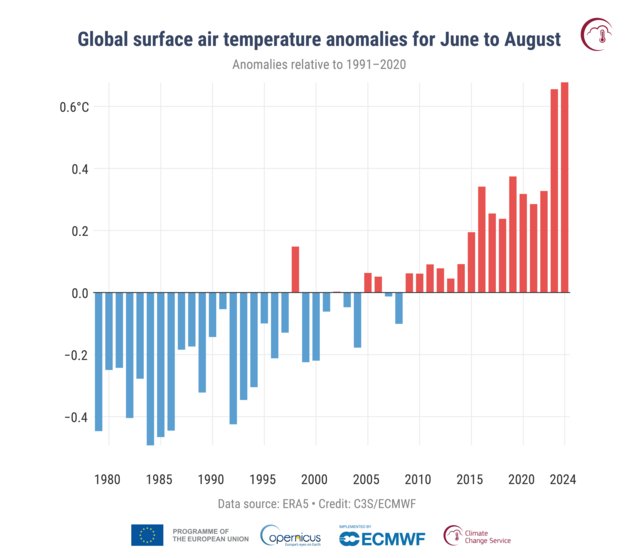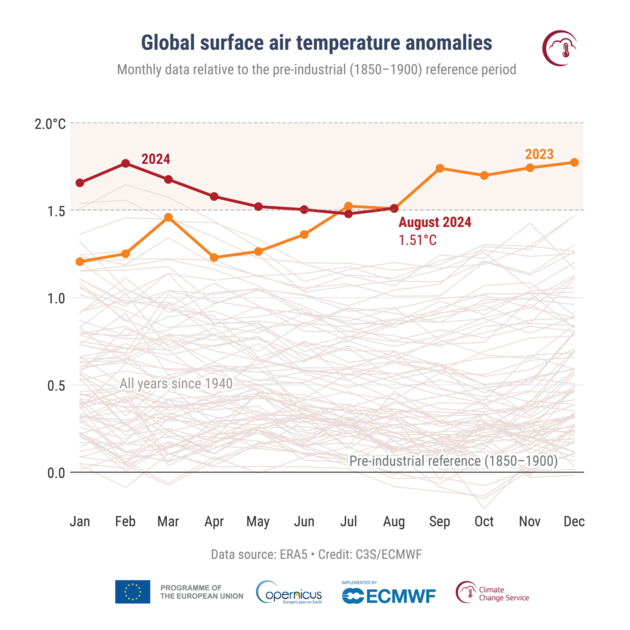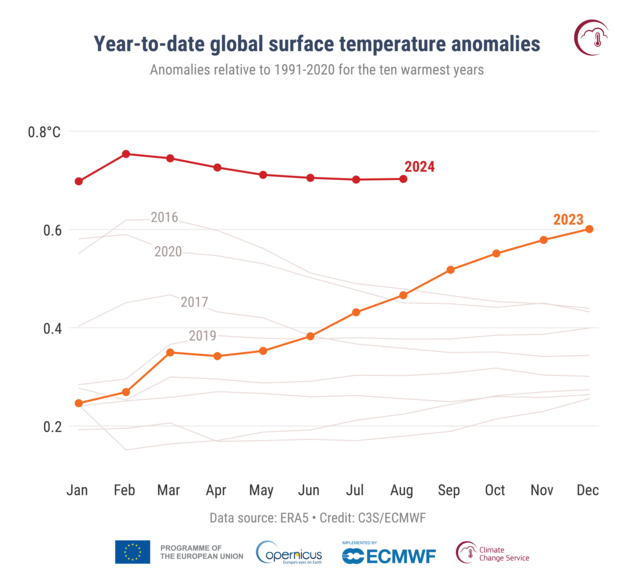
Photo/C3S
The European Union's Copernicus Climate Change Service (C3S) has declared the summer of 2024 as the hottest on record, with global average temperatures from June to August exceeding the 1991-2020 average by 0.69°C, surpassing last year's record. This trend indicates that 2024 is poised to be the warmest year in recorded history unless a significant temperature drop occurs in the remaining months.
August 2024 was 1.51°C above the pre-industrial level and is the 13th month in a 14-month period for which the global-average surface air temperature exceeded 1.5°C above pre-industrial levels.

Photo/C3S
The global-average temperature for the past 12 months (September 2023 – August 2024) is the highest on record for any 12-month period, at 0.76°C above the 1991–2020 average and 1.64°C above the 1850–1900 pre-industrial average. These values are identical to those recorded for the previous two 12-month periods, ending in June and July 2024.
The year-to-date (January–August 2024) global-average temperature anomaly is 0.70°C above the 1991-2020 average, which is the highest on record for this period and 0.23°C warmer than the same period in 2023. The average anomaly for the remaining months of this year would need to drop by at least 0.30°C for 2024 not to be warmer than 2023. This has never happened in the entire ERA5 dataset, making it increasingly likely that 2024 is going to be the warmest year on record.

Photo/C3S
According to Samantha Burgess, Deputy Director of the Copernicus Climate Change Service (C3S): "During the past three months of 2024, the globe has experienced the hottest June and August, the hottest day on record, and the hottest boreal summer on record. This string of record temperatures is increasing the likelihood of 2024 being the hottest year on record. The temperature-related extreme events witnessed this summer will only become more intense, with more devastating consequences for people and the planet unless we take urgent action to reduce greenhouse gas emissions."
As the world faces the challenges posed by rising temperatures, international cooperation is crucial in reducing risks and adapting to climate change. The United Nations Secretary-General and the World Meteorological Organization have called for global efforts to address the issue, with the WEF warning that over 70% of the global workforce is at risk from extreme heat, potentially leading to millions of heat-related deaths by 2050.
The C3S report serves as a stark reminder of the need for immediate and decisive action to reduce greenhouse gas emissions and mitigate the devastating impacts of climate change on both human society and the planet.


 川公网安备 51019002001991号
川公网安备 51019002001991号





